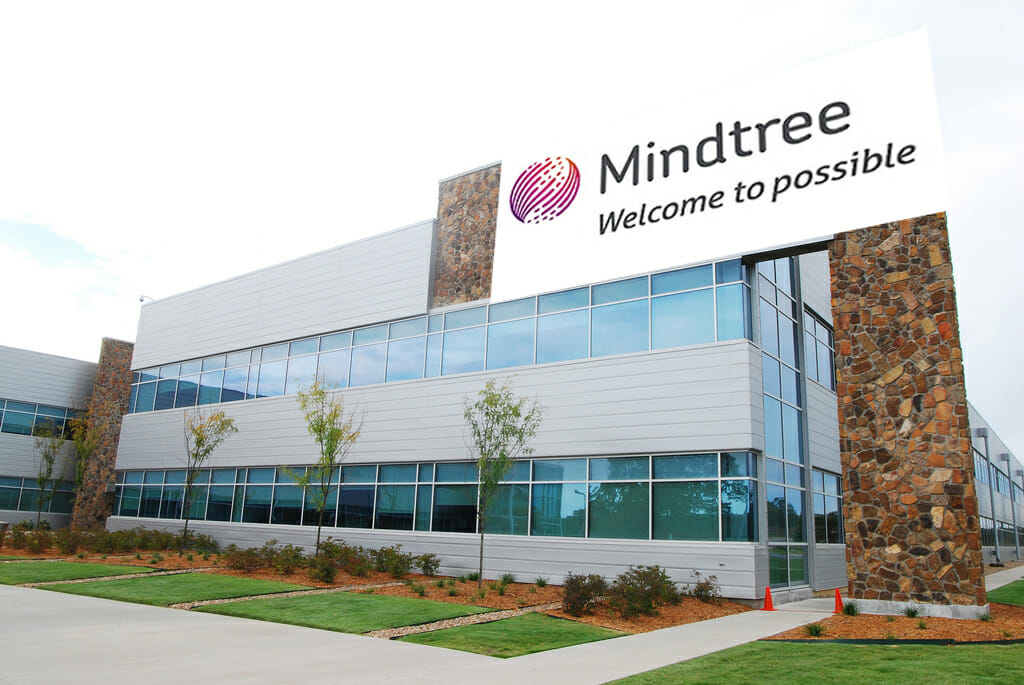
In recent years, Mindtree has earned a solid reputation for helping organizations implement business and technology solutions through global software development. While still best known for its product-development, Mindtree has recently started to tackle another challenge: the world’s growing reskilling crisis. eLearningInside recently talked to Anindya Maitra, Head of Organization Development at Mindtree, to learn more about how Mindtree is tackling the reskilling challenge and what is working about their approach. This is the first of our two-part interview.
The Urgent Need to Focus on Reskilling
Cait Etherington: Mindtree has already started to model what reskilling can look like on a mass scale. Can you talk about this initiative and why it has been so success to date?
Anindya Maitra: Reskilling has always been an expectation as technology evolves over time. Today, that expectation has accelerated beyond our comfort zone of response time. To proactively address this, Mindtree has implemented what it calls a “humane approach” for automation and created a digital, intellectual and emotional infrastructure for Mindtree Minds, our employees. Mindtree’s digital and intellectual infrastructure is comprised of new age platforms and emerging technologies, and offered as an integrated environment for learning and building collaboration skills. Mindtree developed its own platform called Yorbit to reskill and upskill thousands of employees in digital technologies such as machine learning, big data, mobile, cloud, DevOps, agile and design thinking. Yorbit has over 1000 courses covering 500 skills. The platform is designed to personalize learning paths and determine the appropriate course load for an individual‘s unique reskilling journey. It has been widely embraced with 90% of Mindtree Minds having completed courses on the platform.
While Yorbit successfully addresses scale, physical interaction is needed to support the impact that rapid change has on emotions. To better support employees, Mindtree has created an emotional infrastructure blueprint that provides Mindtree Minds with the resources they need to take on and sustain this continuous learning journey. Leadership proximity, support networks, organizational rituals, conversations and exclusivity are some of the elements of this framework that helps employees balance the inherent uneasiness that comes with change.
Reskilling will be a continuous journey through adjacent skill transformation and continuous mapping of talent to match the emergence of new roles. With the growth of emerging digital technologies, talent transformation continues in tandem. Since uncertainty is the name of the game, our infrastructure is adaptive by design to deal with another disruption that may change our course ahead.
AI, Machine Learning, and the Growing Knowledge Gap
CE: A recent report by the World Economic Forum suggests that “On average, by 2020, more than a third of the desired core skill sets of most occupations will be comprised of skills that are not yet considered crucial to the job today.” Is there a way to proactively respond to this growing and potentially dire knowledge gap?
AM: With AI, machine learning, 3D printing, sensors and IoT there will be changes in the how solutions are built and consumed. Existing solutions will leapfrog into a world of new technology and new skills will be required to support this. The bullock cart rider did not drive the train, the train driver did not fly the plane and the pilot will become extinct with driverless mobility. This will continue to be the storyline, so it’s important that we are quick learners and can easily slip into the next track. We will have to look at new ways of software delivery, customer engagement and talent development as emerging technologies transforms the way we do business. The best way to prepare ‘future talent’ is to engage people and encourage them to explore and adopt new platforms, devices and tools, and most importantly, reimagine how to interact with clients externally and colleagues internally.
The knowledge gap cannot be a catchup game, instead it will be won by being agile and open to new technologies and solutions. We have to be proactive and smart. This starts from the top down – leaders need to be facilitators and change agents to support teams as they go through transitional periods. Organizations must foster a learning and growth infrastructure.
The two most critical skills that talent of future will require by 2020 are: (1) complex problem solving and (2) critical thinking. People will have to continue to build these two skills in their current scope of work and world. There is no other choice.
Transforming the Talent Pipeline
CE: Moving forward, economists predict that there will be a huge surplus of under-skilled workers and a huge deficit of skilled workers. What role can private businesses play in reversing this trend?
AM: Let’s not forget that we live in layered economy. There will always be jobs for under-skilled workers, but their world of employment will slip to low-quality, low-pay jobs unless they upgrade their skills to match emerging demands. It also depends on how developing countries make decisions to fulfill internal demands while providing a skilled workforce for the global economy. The world is more and more tilting towards a ‘protectionism’ approach. Therefore, industries have started viewing internal demands as an opportunity. For instance, Mindtree’s India business has become an important focus area for the company and we have created a separate business unit to serve internal demand for local talent which creates an opportunity to upskill workers in the community.
Additionally, there is an opportunity for businesses to invest in large scale upskilling programs and build a talent pipeline to target individuals that may not live in larger technology hubs. This change in dynamics has brought various global players in the education and learning domain to build virtual certification programs to reach out to smaller towns and cities to tap into potential talent. The internet transformed learning and education. If learning resources become as accessible as mobile connectivity, the chances of this trend reversing will become real. This can be a game changer as technology driven learning becomes mainstream and degrees earned through virtual colleges or universities are widely accepted. Our future engineers can come from anywhere and can even be self-taught. Businesses must see this as an opportunity.









No Comments